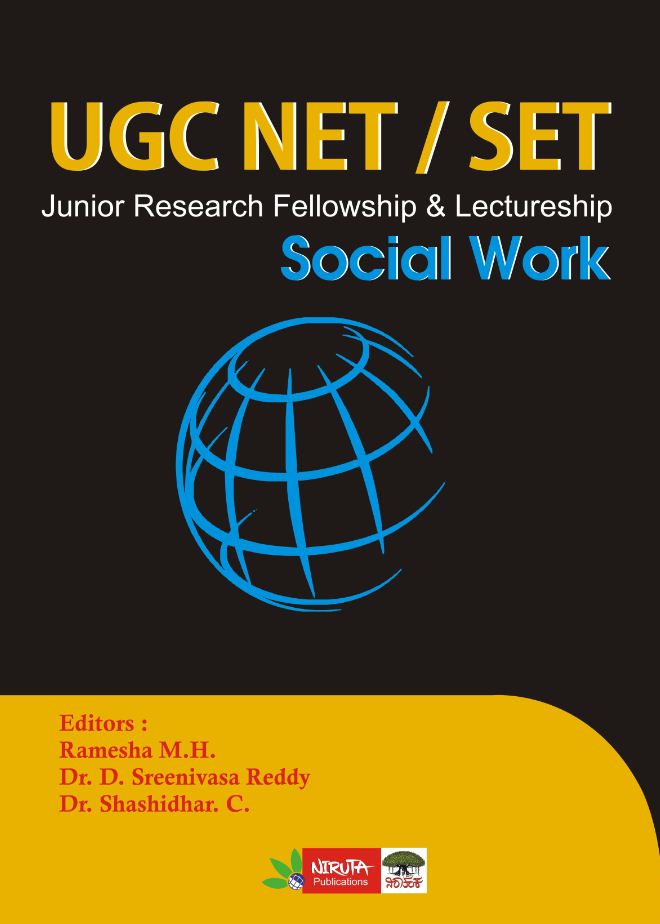|
Social Policy-Concept and Scope An understanding of social policy is vital for engaging practically with social work values, dealing with political and ethical questions about responsibility, rights, our understanding of ‘the good society’. The concept of “social policy” has often been misunderstood or misrepresented in recent development literature, relegated a secondary order of importance after economic policy. It has been depicted as a reactive tool to address the social consequences of market failure or social casualties. This conventional view relates that social policy must concern itself with ensuring equitable access to social services such as healthcare and education and must also respond to social challenges and market failures by providing social security systems and structures to support vulnerable and marginalized groups in society. But social policy is much more than that. Within this understanding, social policy is an approach or an agenda to social equity that requires the mainstreaming of social equity concerns within all public policies and programs. Social policy relates to guidelines for the changing, maintenance or creation of living conditions that are conducive to human welfare. Historically, social policy has been about interventions of a socially redistributive kind (from rich to poor, young to old), of a social regulatory kind (setting the ground rules of a market economy), of a social rights kind (delimiting the rights and duties of citizens with regard to access to services and incomes) (Deacon, Ollila Koivussalo and Stubbs, 2003). Social policy is concerned with intervention by governments and other organizations to meet human needs. Social policy is essentially focussed on those aspects of the economy, society and polity that are necessary to human existence and the means by which they can be provided. Social Policy is an interdisciplinary and applied subject concerned with the analysis of societies’ responses to social need. It seeks to foster in its students a capacity to understand theory and evidence drawn from a wide range of social science disciplines, including economics, sociology, psychology, philosophy and political science. Social Policy is focused on those aspects of the economy, society and polity that are necessary to human existence and the means by which they can be provided (Brooks, 1998). Definitions of Social Policy: Social policy is often defined as social services such as education, health, employment, and social security. However, social policy is also about redistribution, protection and social justice. The term policy, social policy too does not seem to have unanimity among the authors. Social policy is used in different contexts by different opinion like leaders, administrators, thinkers, philosophers and the scholars of social policy as well as other social scientists. The term social policy is not only used to refer to academic study, however, it is also used to refer to the social actions taken by policy makers in real world. So, social policy refers both to the activity of policy making to promote well-being and to academic study of such action (Alcock, Erskine and May, 2004). According to Erskine (1998) “social policy is a discipline as well as being an area of practice. This is to point to a distinction, which is frequently confusing, between social policy as a field of study and social policy a set of policies adopted by government, local authorities and other organization to achieve social purposes”. According to Levin (1997) “social policy refers to the practice of social intervention aimed at securing social change to promote the welfare and wellbeing of citizens. Many organization and agencies, and the people who work in or for them, are involved in formulating and implementing social policies”. Rice (2000) says that “social policy is a broad term encompassing not only social welfare but other activities of government affecting social life. Social policy endeavours to affect the nature of the quality of life. It creates conditions which are intended to increase the welfare of, insure just treatment of individuals, and provide resources to those who, due to an inability to earn income, are unable to meet their own needs and reduce or, if possible, eliminate social inequalities through redistribution. Social policy in its broadest dimensions encompasses many areas: social welfare, health care, justice and corrections, culture, broadcasting and the arts, and native people, to name a few”. According to Alcock (2003) “social policies are developed within societies to meet the needs for the welfare and wellbeing within the population”. Richard Titmus (1958), was the first professor of Social Administration, who was appointed at the London School of Economics in 1950, says that “social policy as collective interventions to meet certain needs of the individual and/or to serve the wider interests of the society”. He believes that social policy is designed to provide welfare for citizens includes economic as well as non-economic objectives, involves some measure of progressive redistribution in command-over-resources from rich to poor. According to Mecbeath (1957) “social policies are concerned with the right ordering of the network of relationships between men and women who live together in societies, or with the principles which should govern the activities of individuals and groups so far as they affect the lives and interests of other people”. Pension (1962) point out social policy can be defined “as a policy which aims at a continual reform of society in order to eliminate weaknesses and constructs or ameliorates good situations”. According to Kulkarni (1965) “social policy as the strategy of action indicting the means and methods to be followed in successive phases to achieve the declared social objectives”. Marshal (1965) defines “social policy refers to the policy of governments with regard to action having a direct impact on the welfare of citizens providing them with sources of income”. According to Hagenbuch (1958) “social policy is the desires to ensure every member of the community achieve certain standards and certain opportunities in the life”. Gil (1973) avers, “Social policies are principles or courses of action designed to influence the overall reality of life in a society”. The social work dictionary (1991) defines “social policy as the activities and principles of a society that guide the way it intervenes in and regulates relationships between individuals, groups, communities, and social institutions. Social policy includes plans and programs in education, health care, crime and corrections, economic security and social welfare made by governments, voluntary organizations and the people in general”. After evaluating the above definitions one can conclude that social policy is defined as a series of public policies designed to promote social development, undertaken by a variety of actors through a range of instruments. It empowers individuals and community to be their own advocates for change. Characteristics of Social Policy The following are the characteristics of social policy (Wals, Stephen and Moore, 2003; Kennett, 2004)
Objectives of Social Policy To be precise, social policy has the following objectives (Singh, 2000)
Nature of Social Policy It is an interdisciplinary social science subject that draws on ideas and concepts from sociology, politics and economics in particular. Social policy has traditionally been concerned with social welfare provision by the state. Further, Social policy is collective interventions in the society to influences the access to and the incidence of adequate and secures livelihood and wellbeing. Social policy by nature played redistributive, protective, and transformative or development roles. Social policy as referring to policies, procedures, practices and values related to social welfare. In practice Social policies deal with issues, such as poverty, poor housing and disability that threaten or prevent well-being in families, communication and other social context. Social policies are the result of interaction within a whole system of social, political and economic factors. Scope of Social Policy There is no consensus on the scope of the social policy. The scope of social policy is vast and it includes the intervention of all the sectors by the Government. Devereux and Cook (2000) views social policy intervenes in the following areas (5S):
According to Burch (1999) in the following areas the scope of social policy is visible.
Steps in Policy Making: According to Richard M Titmas (1958) the following steps are generally followed while formulating a social policy. Step one: Feeling of need of policy making Step two: Committee formulation to look into it Step three: Collection of data and details relating to theory and model Step four: Selection of alternatives and services Step five: Formation of draft experimental policy Step six: Inform to the people Step seven: Final approval of the draft policy Step eight: Enforcement and evaluation Distinction Between Social and Economic Policies Economic policy is concerned with the promotion of new economic system able by itself to raise productions and income levels of all in the society. Social policy is the planned intervention to improve the capacity of existing social system to cope with the demands of change and growth. The main purpose of social policy is to improve the conditions in regard to social environment, housing, health, nutrition, education, training, employment, working conditions and social security. But the expenditure on education, health, housing and the like are not merely means to social development, they are economic development. It thus, appears that social policy and economic policy are complementary to each other and have the same aim, i.e. enrich the social life of human being. They are also trying to achieve social and economic justice. If the economic policy is separated from social policy, economic inequality will appear at the scene. However, it does not mean that social policy and economic policy are the same. Social policy is framed keeping in view of the beliefs, religion, attitude, behavioural patterns, traditions and interests of the society; whereas economic policy is chalked out on the basis of the availability of economic resources. Social policy gives importance to the change and improvement in social determinants of life where as in economic policy emphasis is given on the improvement of economic factors. The fields of economic policy are production, consumption, exchange and distribution, whereas social policy covers the field of education, health, rural and urban development, housing and welfare of the weaker and handicapped sections. Subscribers please login to access full text of the article
New 1 Year Subscription to Digital Archives at just Rs.500
0 Comments
Your comment will be posted after it is approved.
Leave a Reply. |
UGC NET Training for
Social Work We are pleased to announce the training programme on “UGC NET Social Work”. The details of which are as under. It covers in detail the UGC NET Social Work syllabus and previous question papers.
Categories
All
|
SITE MAP
SiteTRAININGJOB |
HR SERVICESOTHER SERVICESnIRATHANKA CITIZENS CONNECT |
NIRATHANKAPOSHOUR OTHER WEBSITESSubscribe |
MHR LEARNING ACADEMY
50,000 HR AND SOCIAL WORK PROFESSIONALS ARE CONNECTED THROUGH OUR NIRATHANKA HR GROUPS.
YOU CAN ALSO JOIN AND PARTICIPATE IN OUR GROUP DISCUSSIONS.
YOU CAN ALSO JOIN AND PARTICIPATE IN OUR GROUP DISCUSSIONS.
|
|



 RSS Feed
RSS Feed





